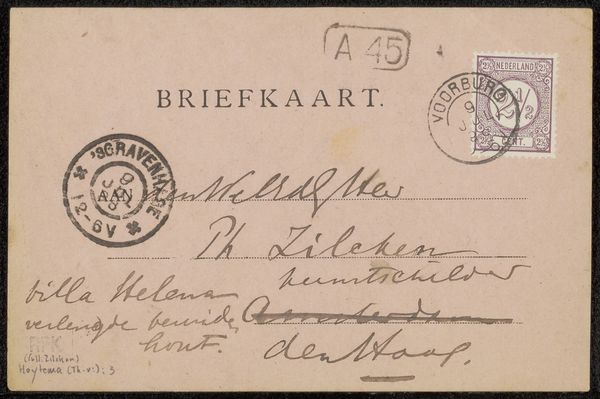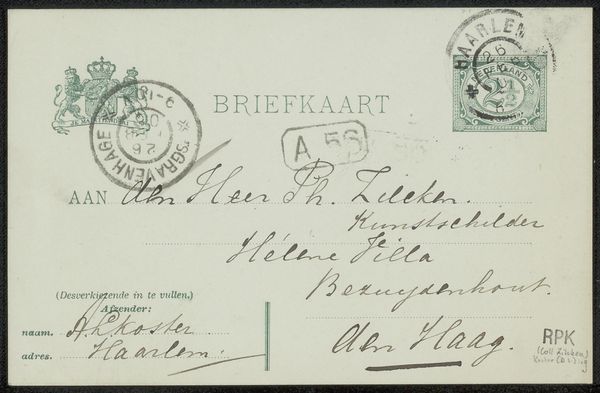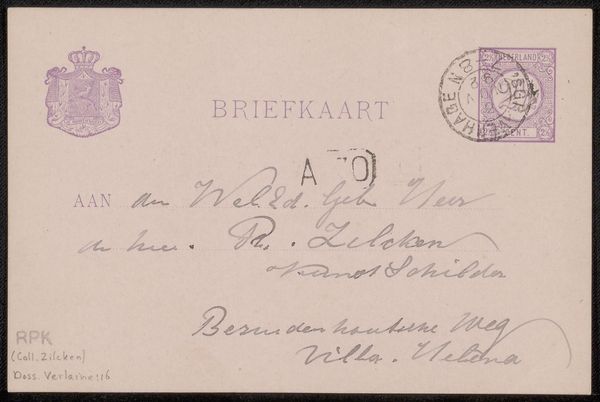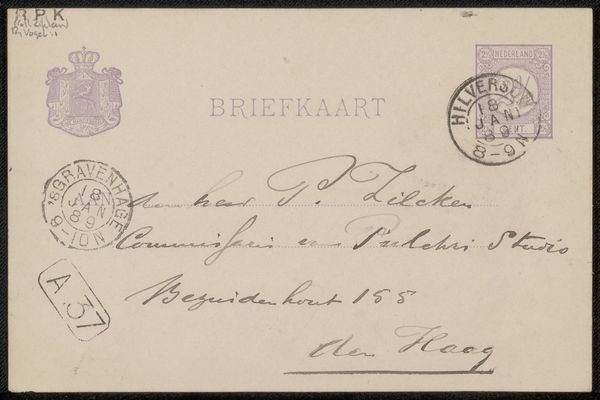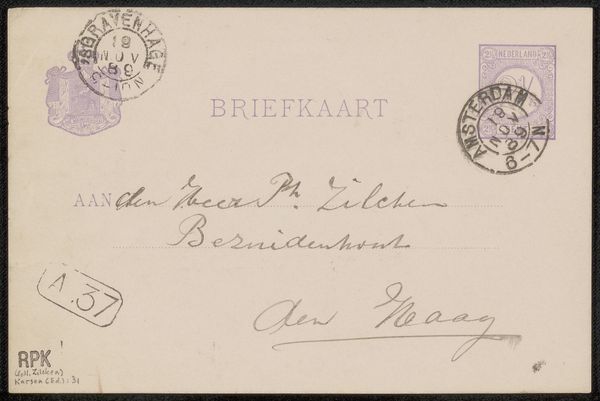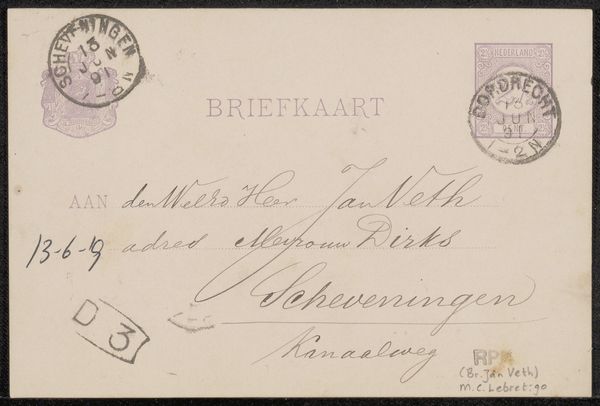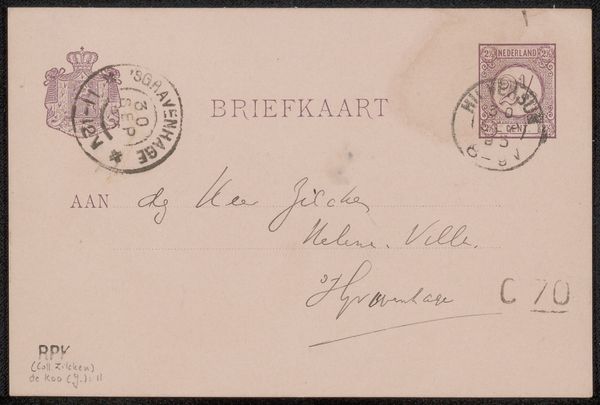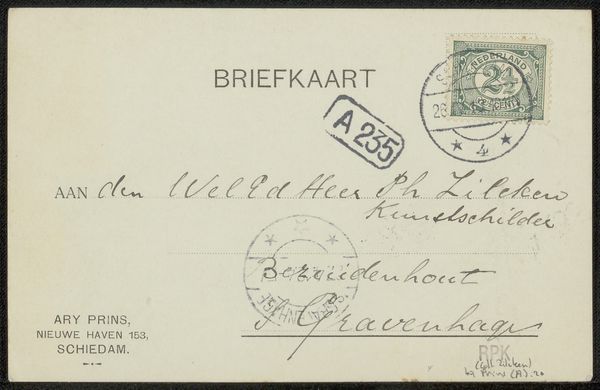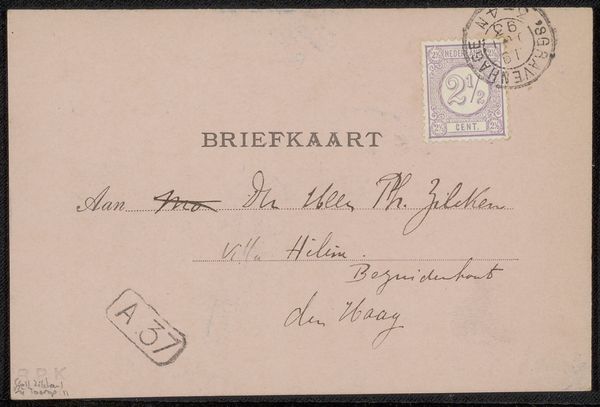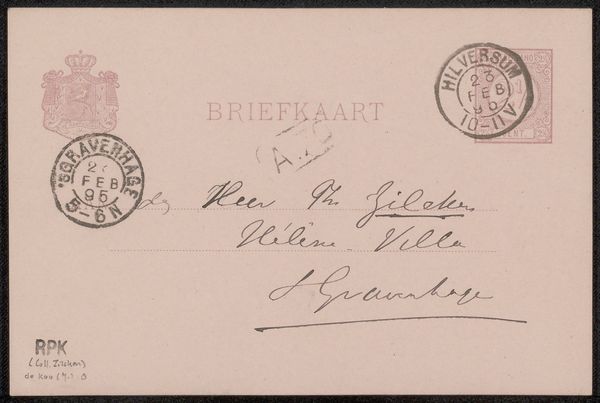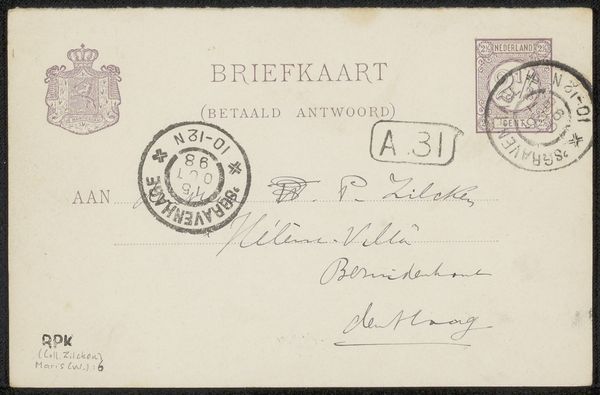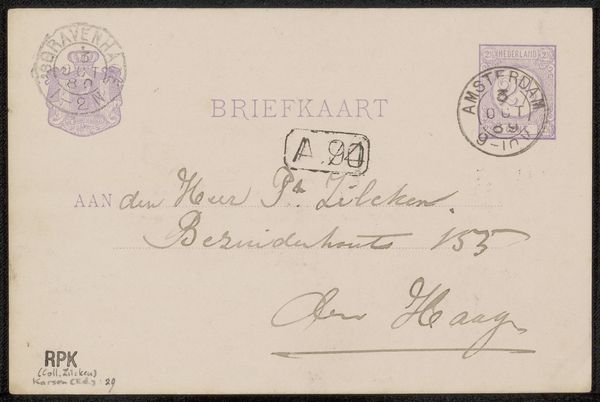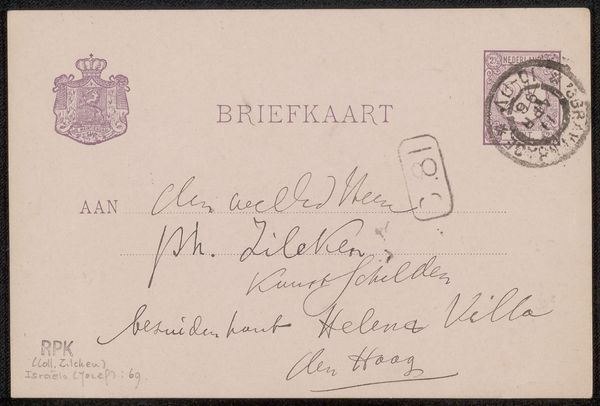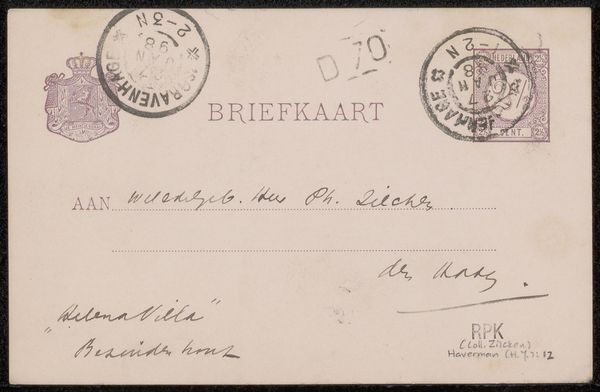
drawing, paper, ink
#
drawing
#
pen drawing
#
pen illustration
#
pen sketch
#
hand drawn type
#
paper
#
personal sketchbook
#
ink
#
ink drawing experimentation
#
pen-ink sketch
#
pen work
#
sketchbook drawing
#
sketchbook art
#
calligraphy
Copyright: Rijks Museum: Open Domain
Editor: This is “Briefkaart aan Philip Zilcken” by Marinus van der Maarel, dating to before 1909. It’s an ink drawing on paper. I'm immediately drawn to the almost performative aspect of handwriting as art. What catches your eye? Curator: What interests me is how a seemingly mundane object like this postcard, used for simple communication, can reveal a wealth of information about the sender, the receiver, and the social context in which it was created. Look at the address; what does locating Philip Zilcken tell us about his position? Editor: Possibly his social standing? That he lived in a specific villa? Curator: Precisely. Now consider the act of sending a handwritten note itself. In our digital age, it feels almost radical, doesn't it? How does this relate to Maarel's broader artistic concerns, do you think? Was he interested in ideas of resisting industrialized culture? Editor: Perhaps, since the handwritten note prioritizes unique and individualized form instead of mass-produced printing. But what can we deduce about Van der Maarel himself from the style of calligraphy? Curator: Calligraphy has historically been a form of social capital, indicating education and refinement. Was Maarel merely exhibiting a common skill, or was he intentionally embracing it as a statement against emerging modern art practices, do you think? What does choosing to send it via "Briefkaart" versus private messenger imply? Editor: It democratizes communication by employing accessible infrastructure, but simultaneously engages in personalized, non-standard forms of artistry and craftsmanship through handwriting. That tension is very interesting. Curator: Exactly. This seemingly simple postcard then is a complex articulation of social relations and artistic identity. The context helps to reveal layers of meaning beyond its face value. Editor: I now appreciate how much more is being communicated beyond the literal words, particularly considering cultural norms.
Comments
No comments
Be the first to comment and join the conversation on the ultimate creative platform.
